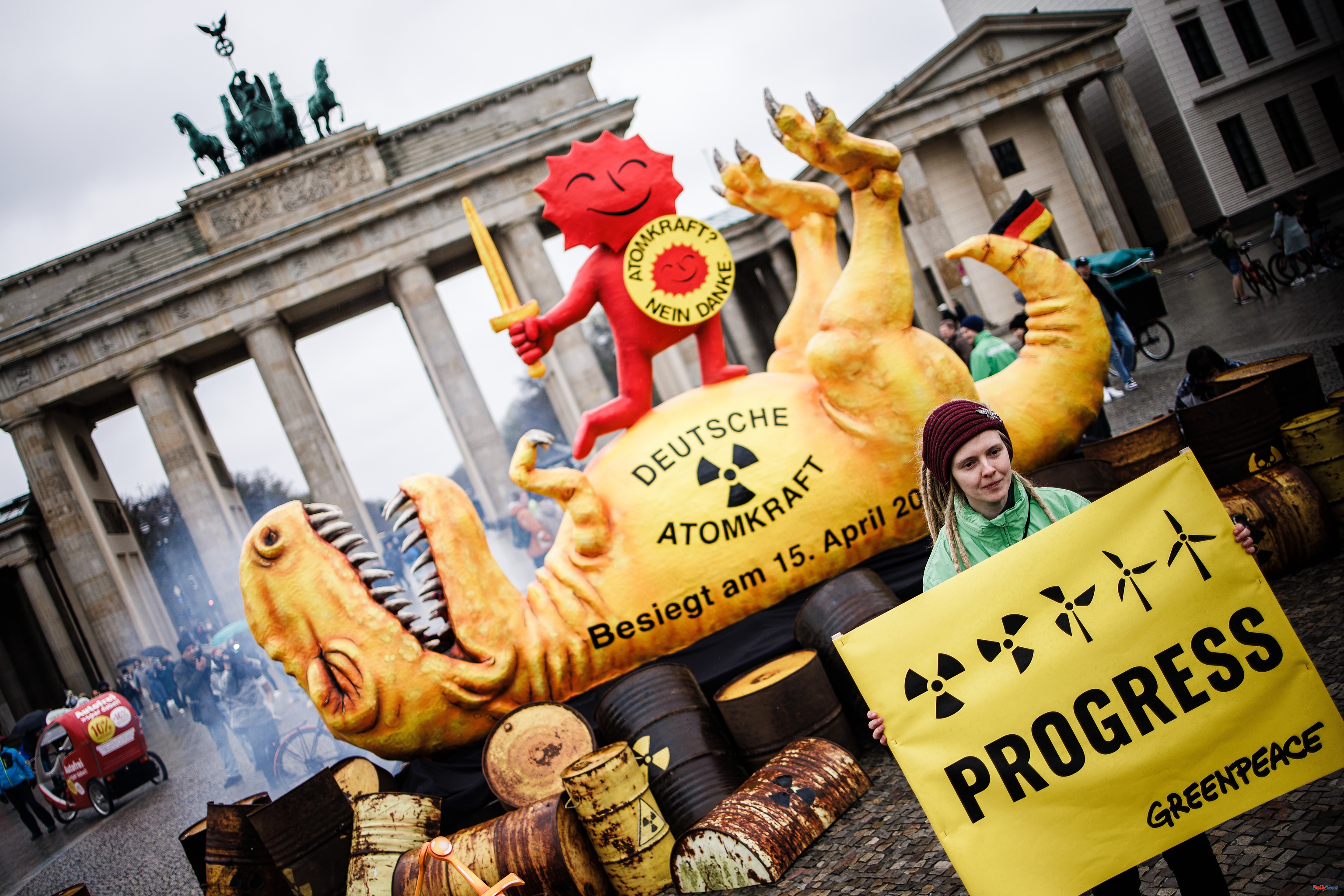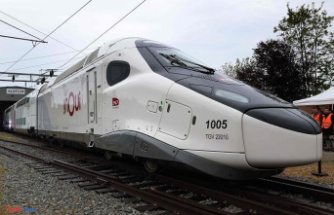Germany ends 62 years of nuclear power tonight. The closure of the three plants that remained operational in the country -Isar 2 in Bavaria, Emsland in Lower Saxony and Neckarwestheim 2 in Baden-Württemberg- will take place at the stroke of midnight, without more ceremony than reducing the power of the reactors. and disconnect generators from the grid. The process lasts a quarter of an hour. Then, with the extraction of the highly radioactive fuel elements, the real long work will begin.
"Today is a black day for Germany," said the head of the opposition Christian Democratic Union (CDU), Friederich Merz. His partners, the Bavarian Christian Social Union (CSU) added: "Black for the citizens, industry and climate protection in Germany."
It has not been reported whether the blackouts will be simultaneous or cascading. In any case, concentrations are expected in the surroundings, although not massive. The earliest concentration was the one called by the environmental organization Greenpeace at the Brandenburg Gate in Berlin, where they displayed a banner that read "German nuclear power defeated on April 15, 2023!". In Lingen, a city close to one of the sentenced reactors, opponents of nuclear energy gathered in front of the ANF fuel assembly factory, which belongs to the French group Framatome, to also demand the cessation of nuclear fuel production for the European nuclear companies from the East of the company formed by the French Framatome and the Russian state corporation Rosatom. The demonstration plans to head from Lingen to the neighboring Emsland nuclear power plant. According to the police, there are about a hundred people.
The closure of the 16 plants that were in place in Germany when former Chancellor Angela Merkel announced the abandonment of nuclear power in response to the Fukushima accident in 2011 was due to have been completed last year. Chancellor Olaf Scholz decided, however, to extend their lives due to the supply problems caused by the interruption of the Russian gas supply during the war in Ukraine. At that time and despite the dizzying rise in energy prices and the danger of blackouts, the Greens, partners of the tripartite, only contemplated a postponement of several weeks.
A week before the closure agreed for April 15 and in the face of protests from the opposition and the majority of opinion against the population, the Liberal Party (FDP) tried unsuccessfully to convince its partners and buy more time. Nor did a letter signed by a hundred scientists, including Nobel Prize winners, achieve the extension for clean, safe and cheap energy.
FDP leader and Finance Minister Christian had proposed putting the reactors on standby rather than dismantling them, as the Greens demand. "If we were to get them up and running in the next two or three years, we would have that possibility," he said. For Environment Minister Steffi Lemke, of the Green party, that this possibility has vanished is a "relief" and described the last-minute request of her partners as a "strategic error".
The arguments of both sides are known, but critics of the Government's decision have added two: the irresponsibility of proceeding with the disconnection without having a solution for the waste and the impossibility of escaping a supposed nuclear accident when neighboring countries They have power stations less than 100 kilometers from the borders.
According to a report by the Federal Office for Radiation Protection (BfS) and the Federal Office for Safety in Nuclear Waste Management (BASE), "the abandonment of nuclear power represents a clear safety gain in Germany, but as long as they continue to operate nuclear power plants in the immediate vicinity or a definitive waste solution is found, the risks of nuclear power will still be there."Seven nuclear power plants in our neighboring countries are within 100 kilometers of Germany, and radioactivity does not stop at the borders ", underlines the president of the BfS, Inge Paulini.
The dismantling of a reactor can take up to 15 years, to which is added another two for the demolition of the buildings. According to the RWE, the Emsland power station, one of which will go offline this midnight, will not be demonstrably free of all radioactivity by 2037. "A good six decades of using nuclear power to generate electricity will be followed by at least another 60 years for dismantling and safe long-term storage", underlines BASE President Wolfram König.
The search for a definitive repository for highly radioactive waste continues. In the 1970s, policy makers chose the Gorleben mine in Lower Saxony as the site for a final warehouse without the participation of the population, triggering huge protests. In 2017 a new procedure was launched to involve the public. But it is still a daunting task: who would want to live next to a nuclear graveyard?
German nuclear power plants generate some 1,900 containers of highly radioactive waste that is currently stored in 16 interim storage facilities. In addition to high-activity radioactive waste, especially dangerous and long-lived, some 600,000 cubic meters of so-called low- and medium-activity radioactive waste must also be safely disposed of.
According to Minister Lemke, a definitive repository for low- and medium-activity waste appears to have been found. It will be the old Salzgitter iron mine, Schacht Konrad, in 2027. About 300,000 cubic meters of nuclear waste will end up there, the volume is approximately equivalent to the content of 100 Olympic swimming pools. Half of it remains to be located, and especially the most radioactive .
Abandoning nuclear power will be expensive for companies. According to the energy company RWE, the costs of post-exploitation and decommissioning of a nuclear power plant range between 500 million and 1,000 million euros, depending on the size, age and hours of operation of the plants. A commission has estimated that, in total, they will be 48,800 million euros.
For consumers, experts venture that the closure of nuclear plants will cause a price rise of up to 12%. Without the production of nuclear energy, which represents 6% of electricity, is replaced by coal or gas, you have to buy expensive CO2 certificates for it.
According to the criteria of The Trust Project












